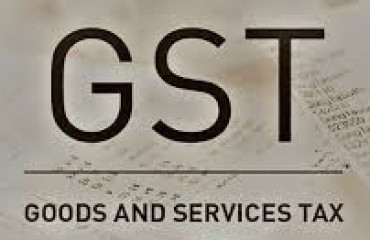
New Delhi: Direct and indirect tax changes to help the large informal sector in the country to formalise, scale up and plug into global supply chains will be a key policy goal for the government after the national elections as part of future reforms, according to two persons aware of discussions in the government.
New Delhi: Direct and indirect tax changes to help the large informal sector in the country to formalise, scale up and plug into global supply chains will be a key policy goal for the government after the national elections as part of future reforms, according to two persons aware of discussions in the government.
Further simplification of both income tax and goods and services tax (GST) regimes for the benefit of unincorporated micro, small and medium enterprises (MSMEs) would be pursued as part of future reforms, said one of the persons quoted above. "If we are going to have manufacturing growth as an important driver of overall economic growth, we cannot forget the role of MSMEs," said the persons who spoke on condition of anonymity. Tax reforms with the idea of empowering MSMEs will help to make growth more inclusive, the person said.
The idea is to tailor the tax regimes so that small entrepreneurs find it easier to comply with the requirements, grow in size and transition to the formal sector. India has over 63 million unincorporated, non-agriculture MSMEs, accounting for over 110 million jobs, as per a 2015-16 survey by the statistics ministry. They account for about 37% of the country's economic output, as per industry estimates. While a business incorporated as a company pays corporate tax, personal income tax applies to those running unincorporated small businesses. Simplifying both direct tax and GST regimes for small businesses will enable them to focus on technology, quality, skilling and join the broader supply chains, the person quoted above said. Although there are over 63 million MSMEs, only 14 million businesses have taken GST registration in the country including large corporations. Given that GST digitally links a business with the regulatory system and captures sales data, taking GST registration enhances access to credit for small businesses. The tax reforms can be revenue neutral and it will boost manufacturing as well as job creation, the person said. Imparting skills and upgrading skills of workers are on the agenda, too.
The government is working on a hundred-day agenda to be implemented after the elections as well as a vision document for transforming the country into a developed nation by 2047. The proposed vision document will entail specific policy measures based on hard data for 'sustained, fast and inclusive growth' so that the country achieves high middle income economy status by 2047 but it is for the government and the Prime Minister to decide when and how to announce these goals, the person quoted above said. "The vision has to be combined with on the ground details to create a programme of policies and reforms. We have to make it happen. It is not an academic exercise," said the person.
Chandrakant Salunkhe, founder and president of SME Chamber of India said the organisation is consulting its members and would give the government its suggestions for the sector. The turnover threshold for the presumptive taxation scheme applicable to individuals and partnership firms could be raised from ₹2 crore to a level more in sync with today's realities, Sudhir Kapadia, Tax Partner at EY said. A higher and realistic turnover threshold incentivises voluntary compliance. Under the scheme, 6% or 8% of the turnover will be treated as the income of the entity, subject to riders relating to the mode of receipt.
Finance minister Nirmala Sitharaman has in recent months highlighted the need for Centre-state synergy for the next generation of reforms. Some of the reforms, for example, inclusion of electricity in GST and power sector reforms require states' support.
Emails sent on Wednesday to the Prime Minister's Office, finance ministry and to NITI Aayog seeking comments for the story remained unanswered at the time of publishing.
